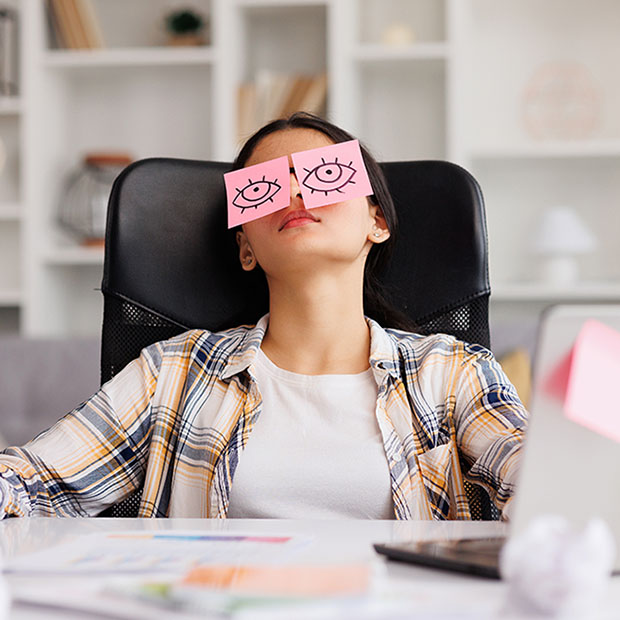How Our Sleep and Eyes Affect Each Other

The health of our eyes and the quality of our sleep are very interconnected.
While we often think of sleep as simply a time for rest, it plays a crucial role in maintaining healthy vision, and conversely, our eye health can significantly impact the quality of our sleep.
How Sleep Benefits Your Eyes
During sleep, your eyes receive essential maintenance that keeps them functioning optimally. Throughout the day, our eyes work constantly, processing visual information, focusing on screens, and adjusting to different lighting conditions. This continuous activity puts significant strain on the delicate structures of the eye.
When you sleep, your eyes are lubricated by a continuous supply of tears, washing away irritants and debris that accumulated during the day. This natural cleansing process is vital for preventing infections and maintaining clear vision. Additionally, the cells in your eyes, like those throughout your body, undergo repair and regeneration during sleep. The cornea, in particular, benefits from this nightly restoration period.
Sleep also allows the eye muscles to fully relax. After hours of focusing, converging, and adjusting, these muscles need downtime to recover. Without adequate rest, you may experience eye strain, difficulty focusing, and even temporary vision disturbances.
When Sleep Deprivation Affects Vision
Lack of sleep can manifest in numerous eye-related problems. The most immediate effect is often dry, irritated eyes. When you’re sleep-deprived, your tear production decreases, leading to that gritty, uncomfortable feeling. You might also notice increased light sensitivity, making it difficult to work on computers or be in brightly lit environments.
Chronic sleep deprivation can lead to more serious issues, including eye spasms or twitching (myokymia), blurred vision, and even double vision in severe cases. Your eyes may appear bloodshot, and you might develop dark circles or puffiness around them. Perhaps most concerning, insufficient sleep has been linked to an increased risk of glaucoma and other serious eye conditions over time.
How Eye Problems Disrupt Sleep
The relationship works both ways. Certain eye conditions can make it difficult to fall asleep or stay asleep. People with dry eye disease often experience worsening symptoms at night, causing discomfort that interferes with sleep. Similarly, individuals with glaucoma may experience nighttime eye pain or pressure that disrupts rest.
Eye strain from excessive screen time, particularly before bed, can also interfere with sleep quality. The blue light emitted by digital devices suppresses melatonin production, making it harder to fall asleep and reducing overall sleep quality.
Protecting Both Sleep and Vision
To maintain healthy eyes and quality sleep, establish a consistent sleep schedule of 7-9 hours per night. Practice the 20-20-20 rule during the day: every 20 minutes, look at something 20 feet away for 20 seconds. Limit screen time before bed, and consider using blue light filters on your devices. If you experience persistent eye discomfort or sleep problems, consult with an eye care professional.

